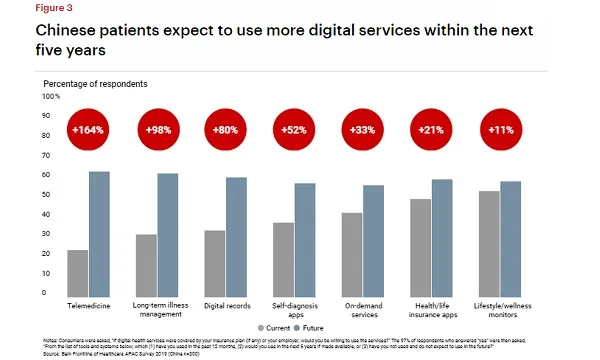
Travel restrictions spur online healthcare services in China
Priorly, less than a quarter of the population had used telemedicine.
China’s online healthcare has grown explosively as many patients who have been trapped indoors are turning to internet-based options for diagnosis and treatment, according to a Bain report.
For instance, healthcare services platform Ping An Good Doctor had a nearly 900% MoM increase in new users in January, when the virus spread across China. The number of online users and visits likewise surged at online healthcare community Ding Xiang Yuan and telemedicine platform Chunyu Doctor.
Before the outbreak, the population typically visited physical institutions for their healthcare needs. According to a survey, only 24% had used telemedicine.
However, 97% expressed interest in using digital health services if the costs were covered by an insurance provider or employer. Nearly two-thirds or 64% are also expecting to use telemedicine within the next five years.
“If consumers develop digital habits and a greater willingness to pay for services during the epidemic, that timeline could be significantly shorter,” the report stated.
Bain advised that the digitisation of China’s healthcare system needs to rapidly advance to be able to prepare for future epidemics. In particular, services like electronic records and digital prescriptions, as well as AI and big data, could break down silos between hospitals.
It noted that whilst some technologies like AI-enabled fever-detection devices are being rolled out quickly, other developments such as the widespread adoption of electronic medical records could improve the system’s efficiency and transparency in times of crisis.
“Continuously develop digital capabilities through self-building, partnership or M&A. Use these capabilities to revamp patient and medical personnel experiences, while improving organizational transparency and efficiency,” the report noted.



















 Advertise
Advertise






